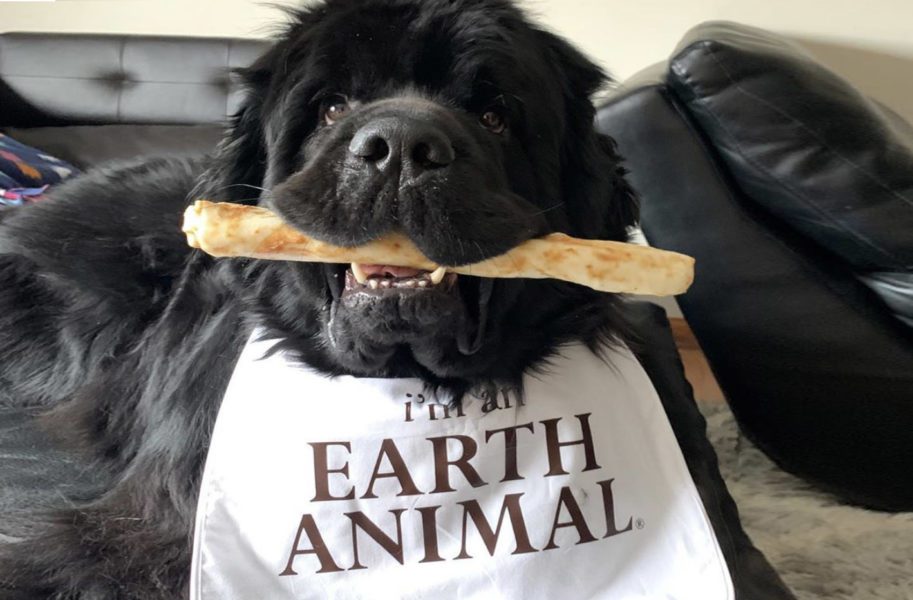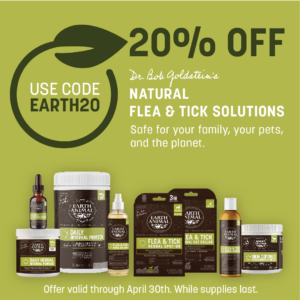Since 1979, we have been committed to a holistic way of caring for animals, another way. One of the easiest and most effective ways we can help our pets to achieve health, wellness, and longevity is through the nutrition we provide for them. We have created our Healthy Food Pyramid for Dogs to optimize your pup’s health. We hope that these building blocks guide you to a balanced diet, made with whole foods, that provides the nutrients your dog needs to thrive, helping to prevent the many chronic illnesses, stemming from poor nutrition, that affect millions of pets today.
The Importance of Hydration for Dogs
Long before the days of kibble, domesticated dogs relied on scavenging and scraps of human food to get their nutrients. This diet typically consisted of 70-80% moisture which supplemented their fresh water to keep them hydrated. However, commercial diets like kibble only contain around 10% moisture which has led to an increase in chronic dehydration for many dogs. The strain this causes on the body can lead to issues with vital organs such as the liver, kidneys, and pancreas while also decreasing their energy and appetite. One way to check if your dog is hydrated is to gently lift the skin or “scruff” in their shoulder blade area. If the skin remains as a ridge rather than quickly returning to a normal flattened state, they are likely dehydrated.
We recommend feeding a variety of quality-sourced, high moisture foods such as:
- Air-Dried
- Raw
- Homecooked
- Canned
When feeding a kibble diet, adding warm water, bone broth, or even goat’s milk to your dog’s bowl will help them stay hydrated. Some dogs may also prefer to drink from the many fountains or bubbler bowls that are available at your neighborhood retailer.
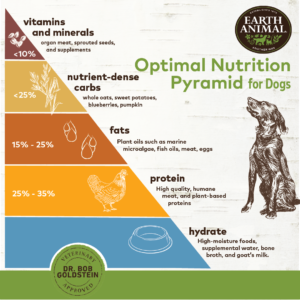 How Much Protein Your Dog Should Have
How Much Protein Your Dog Should Have
While dogs’ wolf predecessors were carnivores who relied on animal protein, evidence suggests this changed when wolves began to rely on human-derived food waste to survive. Modern dogs are now considered omnivores which means, unlike cats, plant-based proteins can adequately meet their essential amino acid requirements. Amino acids are the building blocks of protein that enable to body to perform vital functions. Essential amino acids cannot be manufactured by the body which means they must come from the diet.
Whether from plant or animal sources, the Association of American Feed Control Officials (AAFCO) requires commercial dog foods to contain a minimum of 18-22.5% crude protein, depending on life stage. However, studies have found that when given the option, dogs naturally select a diet consisting of about 30% protein. In a recent study on overweight dogs, a high protein, high fiber diet was found to improve weight loss while maintaining muscle mass. This balance also produced health benefits such as reduced levels of inflammation, insulin, and triglycerides in the blood. This suggests that a higher protein diet could be a key component in promoting wellness and maintaining a healthy weight.
To ensure your dog lives a long and healthy life, we recommend feeding foods that source high quality, humanely raised meat, and avoid the use of by-products. In addition, consider supplementing your dog’s diet with protein-rich toppers and treats such as air-dried, freeze-dried, raw, or home-cooked meats.
The Role of Fats in Canine Health
Depending on age and activity level, a dog’s diet should typically consist of 15-25% fat. The building blocks of fat are known as “fatty acids.” Essential fatty acids are required in the diet as dogs cannot produce them on their own.
Below is a breakdown of the two main groups of fatty acids that are essential for your dog’s health:
| Essential Omega-3 Fatty Acids for Dogs | ||
| Fatty Acid Name | Function | Sources |
|---|---|---|
| Alpha Linolenic Acid (ALA)* | Supports healthy skin | Flaxseed oil, Eggs, Navy Beans |
| Eicosapentaenoic Acid (EPA) | Helps to reduce inflammation | Fish oils, Flaxseed oil, Marine Microalgae (such as spirulina and chlorella), Sugar Kelp |
| Docosahexaenoic Acid (DHA) | Contributes to healthy brain development, skin, and eyes | |
| Linoleic Acid (LA) | Helps the skin retain moisture and supports healthy growth and immune function | Sunflower oil, Eggs, Sugar Kelp |
*not considered essential by AAFCO definitions. See NRC ALA recommendations.
Healthy Carbohydrates for Your Dog
Your dog’s diet should consist of 25% or less carbohydrates. Carbohydrates supply a source of glucose, an essential form of energy for the brain and cells. While protein also provides this energy, carbohydrates in the diet allow for protein to be used for building and maintaining body tissues. We recommend foods containing nutrient-rich complex carbohydrates. As opposed to simple sugars, complex carbohydrates also provide a source of vitamins, minerals, antioxidants, fiber, and even protein! Antioxidants help protect cells from damage which may help prevent chronic illness. High fiber, complex carbohydrates take longer to digest which helps prevent a spike in glucose. Complex carbohydrates can play an important role in helping to prevent conditions like obesity and diabetes.
Below are examples of additional nutrient-rich carbohydrates to include in your dog’s diet:
- Oats
- Quinoa
- Blueberries
- Cranberries
- Broccoli
- Sweet Potato
- Pumpkin
Notice the rainbow of colors? That’s because these foods are rich in phytonutrients. Phytonutrients provide many health benefits such as supporting the immune system and contributing to disease prevention. You can find more of these health-boosting nutrients in Dr. Bob Goldstein’s Wisdom® Dog Food.
Essential Vitamins and Minerals for Dogs
There are certain vitamins and minerals that are essential to your dog’s diet. Vitamins and minerals occur naturally in foods, such meat, vegetables, and fruits. Even though vitamins and minerals equate to less than 10% of your dog’s diet, meeting these levels in pet food manufacturing is virtually impossible without additional supplementation. Commercial diets that meet AAFCO’s definitions of “complete and balanced” typically do not require additional vitamin and mineral supplementation. However, keep in mind that highly processed kibble is often less digestible which means less nutrients are delivered to the body.
We recommend feeding minimally processed food and treats that are air-dried, freeze-dried, raw, and/or homecooked. If you are formulating your own or following a recipe for a homecooked or raw diet, we recommend including a whole-food multivitamin and mineral supplement to ensure their daily requirements are met. One recommended option is Dr. Bob Goldstein’s Daily Raw Nutritional Supplement.
Below are examples of whole foods and herbs that are rich in your dog’s essential vitamins. Whether you are feeding air-dried, dehydrated, raw, or homecooked, consider including some of these ingredients into your dog’s food pyramid:
| Essential Vitamins for Dogs | ||
| Vitamin Name | Function | Sources |
|---|---|---|
| Vitamin A | Supports vision, teeth and bones, skin, and reproduction | Beef, Fish, Egg, Liver, Carrots, Sweet Potatoes, Pumpkin, Spinach |
| Vitamin D | Supports healthy bones | Salmon, Egg, Beef, Beef Liver |
| Vitamin E | Protects cells from damage and supports heart health | Liver, Spinach, Sunflower Seeds |
| Thiamine | Supports carbohydrate metabolism and the nervous system | Poultry, Egg, Liver, Oats, Brewer’s Yeast |
| Riboflavin | Aids in energy | Muscle Meat, Egg, Liver Green Vegetables |
| Pantothenic Acid | Assists with maintaining a healthy metabolism | Chicken, Egg, Liver, Broccoli |
| Niacin | Maintains healthy energy and hormone production, supports metabolism, nervous system, and cognitive function | Poultry, Fish, Liver |
| Pyridoxine | Helps support a healthy metabolism | Poultry, Kidney |
| Folic Acid | Aids in the production of the methionine, an essential amino acid and supports healthy red blood cells | Liver, Kidney, Brewer’s Yeast, Green Vegetables |
| Vitamin B12 | Supports a healthy metabolism and nervous system | Salmon, Egg, Liver, Kidney |
| Choline | Contributes to healthy liver, nerve, and muscle function | Krill, Egg, Heart, Liver |
Below are examples of whole foods and herbs that are rich in your dog’s essential minerals. Whether you are feeding air-dried, dehydrated, raw or homecooked, consider including some of these ingredients into your dog’s food pyramid:
| Essential Minerals for Dogs | ||
| Mineral Name | Function | Sources |
|---|---|---|
| Calcium | Main mineral in healthy teeth and bones and supports normal muscle function | Salmon, Spinach, Rosemary |
| Phosphorus | Maintains healthy bones, teeth, and metabolism and helps stimulate kidney function | Chicken Liver, Oats, Brewer’s Yeast, Chervil (French Parsley) |
| Potassium | Supports nerve and muscle function | Chicken, Salmon, Dill |
| Sodium | Maintains healthy nerve and muscle cell function | Naturally occurring at various levels in meat, fruits, and vegetables |
| Chloride | Supports the metabolism and maintains healthy acid balance | Naturally occurring in many vegetables and seaweeds, like kelp |
| Magnesium | Essential mineral for healthy nerve, muscle, and heart function, supports immune health and regulates glucose | Oats, Spinach, Broccoli, Seeds |
| Iron | Maintains and supplies oxygen in the circulatory system | Beef, Poultry, Egg, Apples, Green Vegetables, Thyme |
| Copper | Aids in iron absorption and the production of bones, collagen, and tissues | Beef Liver, Oats, Quinoa, Spirulina, Thyme, Basil |
| Manganese | Supports the metabolism, healthy bones, and cartilage and energy production | Eggs, Oats, Quinoa, Green Vegetables, Thyme, Basil |
| Zinc | Promotes healthy immune and brain function, growth of skin and coat, and collagen and hormone production | Oysters, Beef Liver, Chicken Heart, Parsley |
| Iodine | Assists with hormone production in the thyroid which contributes to a healthy metabolism | Kelp |
| Selenium | Protects cells from damage and supports healthy metabolism and thyroid | Turkey, Salmon, Beef Liver |
Building Your Dog’s Pyramid for Holistic Health
When it comes to building your dog’s pyramid, be sure to choose minimally processed, high-quality foods such as Dr. Bob Goldstein’s Wisdom® Dog Food. Wisdom is veterinarian-formulated to optimize a dog’s health. It is crafted using a one-of-kind air drying process that locks in flavor and preserves the nutrients in its whole-food ingredients like humanely raised proteins, sprouted seeds, fruits, and vegetables. Click here to learn more.


